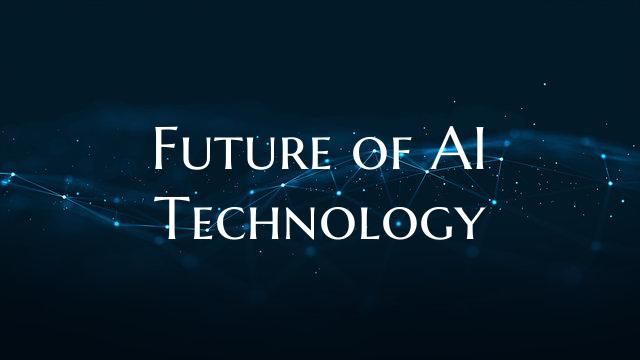Future of AI Technology
Artificial Intelligence (AI) has undoubtedly emerged as one of the most transformative technologies of the 21st century, with its impact touching almost every aspect of our lives. However, what lies ahead for AI technology is even more promising and potentially game-changing. As we continue to push the boundaries of innovation, here is a glimpse into the exciting future of AI technology.
1. Enhanced Personalization: AI algorithms are becoming increasingly adept at analyzing vast amounts of data to create personalized experiences for users. In the future, AI technology will enable even more granular personalization, whether it's in the form of tailored recommendations, customized services, or personalized learning paths. This level of personalization has the potential to revolutionize industries such as e-commerce, education, healthcare, and entertainment.
2. Ethical AI: As AI becomes more pervasive in our society, there is a growing focus on ensuring that AI technologies are developed and deployed ethically. The future of AI will see increased emphasis on building AI systems that are transparent, fair, and accountable. Ethical considerations such as bias mitigation, data privacy, and algorithmic transparency will play a crucial role in shaping the future of AI technology.
3. AI in Healthcare: The potential of AI in revolutionizing healthcare is immense. From assisting in diagnosis and treatment planning to drug discovery and personalized medicine, AI technology holds the promise of improving patient outcomes and reducing healthcare costs. In the future, AI-powered healthcare systems will enable more accurate and timely diagnoses, facilitate remote monitoring of patients, and empower healthcare providers with valuable insights for informed decision-making.
4. Autonomous Systems: The future of AI technology will witness the rise of autonomous systems that can operate with minimal human intervention. From self-driving cars and drones to robotic assistants and smart appliances, autonomous AI systems will continue to reshape industries and daily life activities. These systems will not only enhance efficiency and productivity but also open up new opportunities for innovation and creativity.
5. AI-Powered Sustainability: With the pressing need to address climate change and environmental challenges, AI technology will play a crucial role in driving sustainability initiatives. From optimizing energy consumption and resource management to predicting natural disasters and monitoring biodiversity, AI can help us make more informed decisions for a sustainable future. By leveraging AI algorithms for sustainable development, we can work towards a more environmentally conscious and resilient society.
In conclusion, the future of AI technology holds immense potential for positive transformation across various domains. As we strive towards harnessing the power of AI for good, it is essential to approach its development and deployment with a focus on ethics, inclusivity, and sustainability. By embracing the opportunities presented by AI technology, we can create a future that is not only technologically advanced but also human-centered and purpose-driven.

